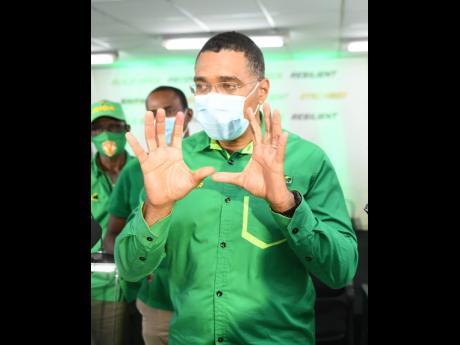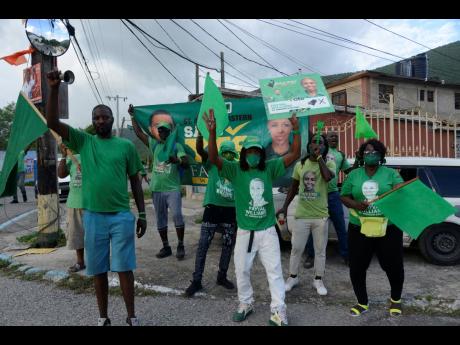Diaspora congratulates JLP on victory
Members of the Jamaican Diaspora in the United States have congratulated the governing Jamaica Labour Party (JLP) on its impressive victory in Thursday’s general election.
However, some members of the diaspora have expressed concerns over the low voter turnout in the election, which saw 37 per cent of those eligible to vote casting their ballots. In 2016, voter turnout was 48 per cent.
With the low participation of the electorate in the polls, members of the diaspora have raised possible implications for the country’s democratic system with such a lopsided result.
Dr Basil Wilson, former lecturer at the John Jay School of Criminal Justice and a political commentator, said that based on the evidence of the elections, the ruling JLP has become the majority party in Jamaica.
“The PNP support has diminished substantially, and their performance Thursday night was abysmal,” he said.
Wilson noted that there was no parish where the People’s National Party (PNP) won a majority of the seats.
“There is no question that the PNP has a lot of introspection to do to become relevant again. But the tragedy is that only 37 per cent of eligible voters turned out to the polls,” he said.
The academic and political commentator said that the PNP should look at what the JLP is doing and “what it is not doing” if it wants to become relevant again.
“I think when you have the kind of challenge that the PNP had with the leadership fight, internal conflicts linger,” he said
Wilson believes that there is some relationship between the electoral outcome and political divisiveness.
Looking ahead, he said that the party should begin to search for a new leader, noting that Dr Peter Phillips, while an effective technocrat, as a party leader, he was uninspiring and not able to capture the imagination of the Jamaican people.
Yesterday, Phillips announced that he was resigning as president of the PNP and opposition leader and asked that plans be put in place to select a successor.
Former New York City Council member and community activist Una Clarke said that the Jamaican people have made their choice. However, pointing to the low voter turnout, she questioned what could have accounted for such a low turnout.
“Could it be COVID or voter apathy? I think it was a bad time to call an election in a pandemic, and so people had to choose life or vote, and they chose life, and what we have seen is voter apathy,” said Clarke.
She saluted the JLP for bringing out its supporters, which, she said, resulted in their convincing win.
According to Clarke, Jamaicans need to fight for the country’s democracy, and a low voter turnout does not reflect well on the democratic process.
Dr Karren Dunkley, the Global Jamaica Diaspora Council member for the Northeast Region, also reacted to the election results.
“The diaspora is surprised at the extraordinary margin of victory by the winning Jamaica Labour Party. While the COVID-19 pandemic adversely affected turnout, the 37 per cent voter turnout also signals the general disinterest of the Jamaican electorate. Our politicians must pay attention by engaging the people with real solutions to Jamaica’s problems,” she said.


